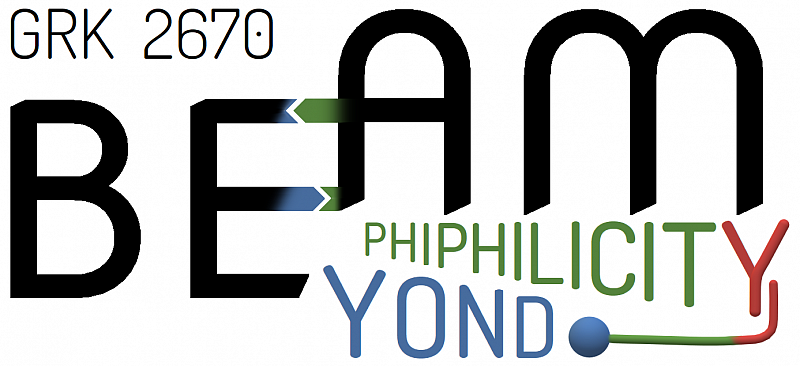(Vorländer cohort)
Projects: A
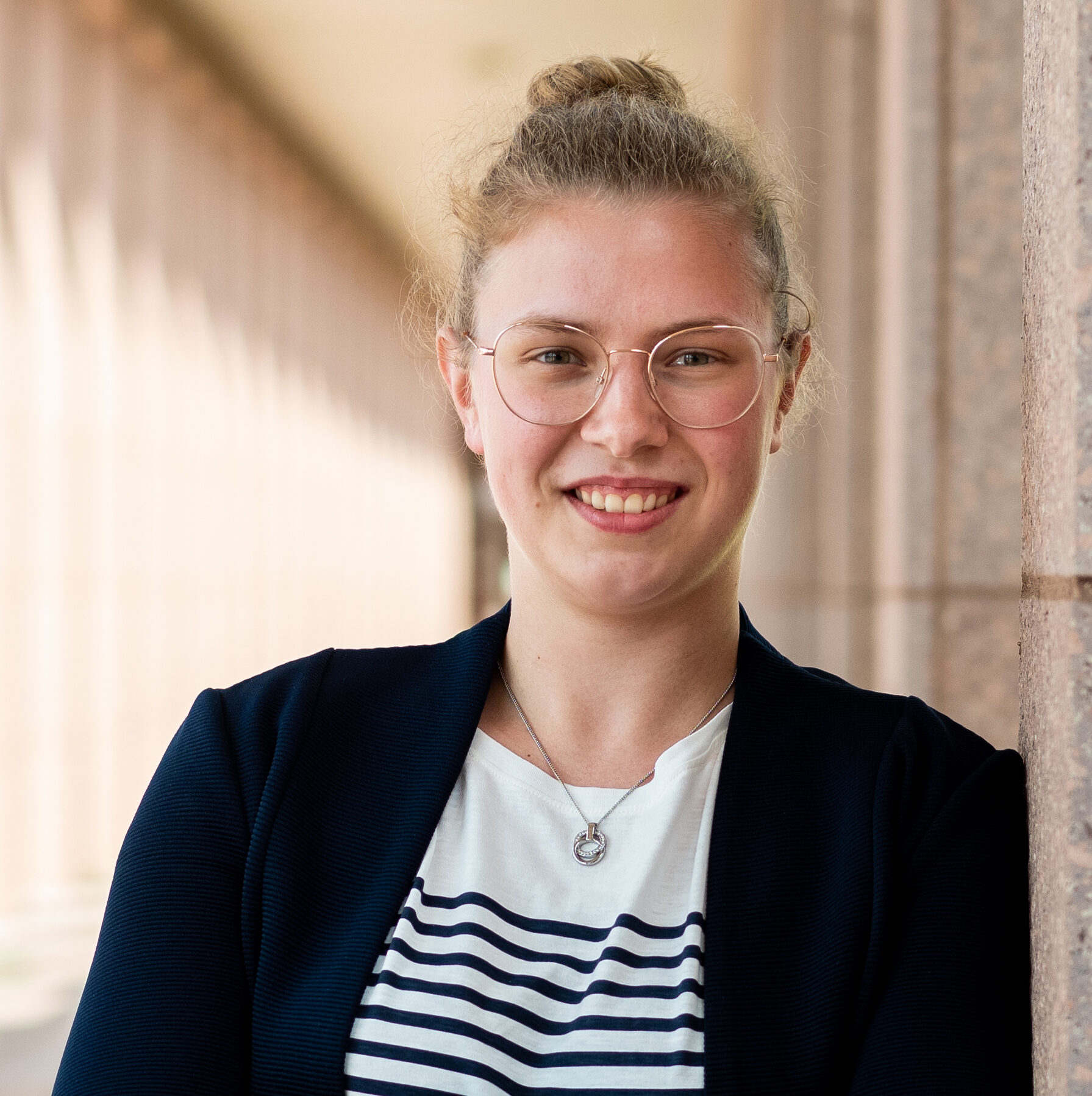
Anna Luisa Upterworth
Supervisor: Prof. Daniel Sebastiani
Co-Supervisor: Prof. Rebecca Waldecker
Contact: anna-luisa.upterworth@chemie.uni-halle.de
In mixtures, diverse structural phenomena occur due to different philicities of the components. The concept of philicity can be understood as the result of competing intermolecular interactions of different nature, but a quantitative formulation of philicity in terms of interaction energies remains difficult. Our goal is to develope such a description in order to get a better understanding of how the interplay of interactions is related to structural phenomena in complex multi-component systems. For this purpose, we will use various methods of quantum-chemistry as well as classical and quantum-mechanical molecular dynamics (MD) simulations.
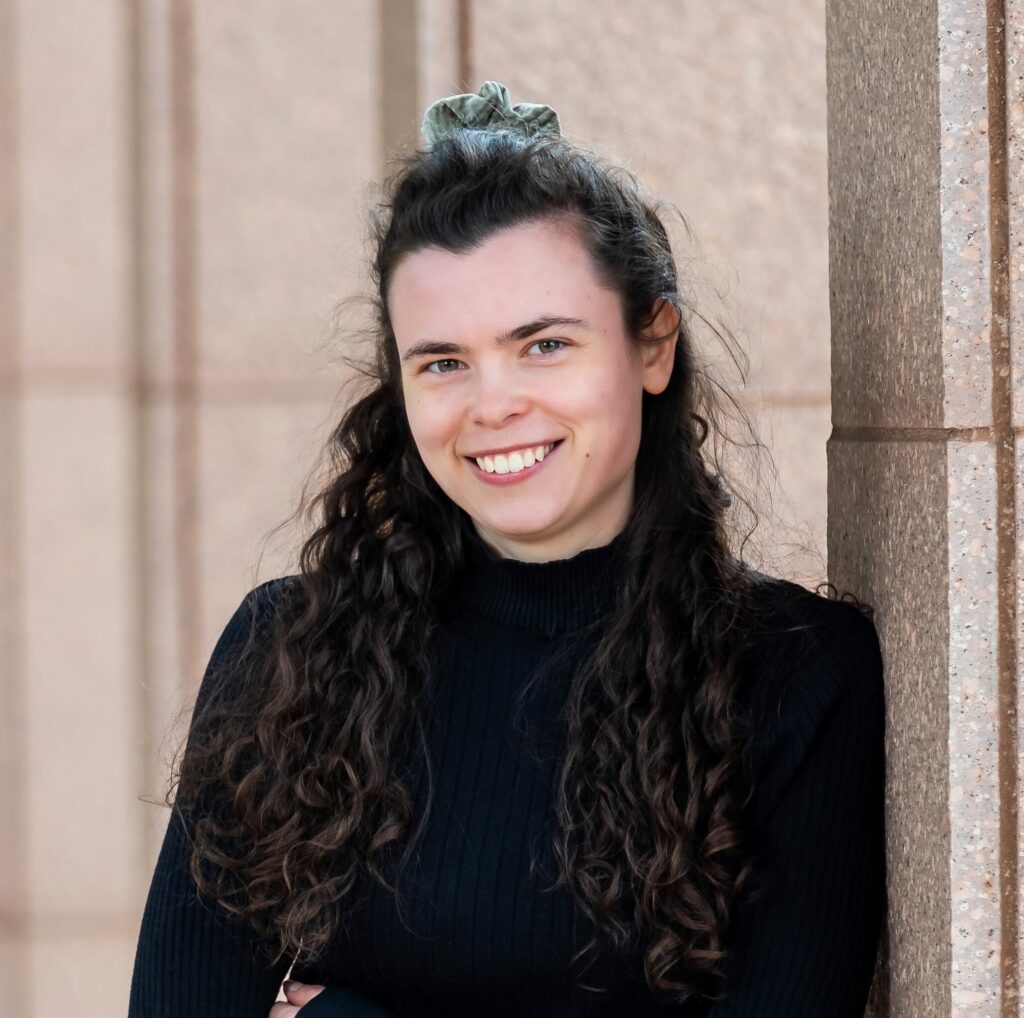
Elise Johanna Hingst
Supervisor: Prof. Dariush Hinderberger
Co-Supervisor: Prof. Rebecca Waldecker
Contact: elise-johanna.hingst@chemie.uni-halle.de
Being part of professor Hinderberger’s team during my diploma thesis I already had the chance to gather practical experience in the field of amphiphilicity. My research focused on structure and organization of monoclonal antibodies at the air/water interface in presence of pharmaceutical polymers. The experiments were conducted by Langmuir Film Balance measurements, Drop Shape Tensiometry and Infrared Reflection-Absorption-Spectroscopy (IRRAS). I was impressed by the practical relevance, the topicality of the subject and the chance to cooperate with the commercial enterprise Boehringer Ingelheim. I’m very glad about the opportunity to continue my diploma project and to start doing research on the myelin basic protein (MBP) and lipid model systems within the framework of a doctoral thesis. Studies on MBP at the air/water interface open up new possibilities for me to apply and expand acquired knowledge of proteins interacting with interfaces. For example, with Infrared Reflection-Absorption measurements, I will be able to contribute to discovering structural properties of soft matter. My motivation is to pave the way for biophysical research in the field of membrane proteins using model membrane systems.
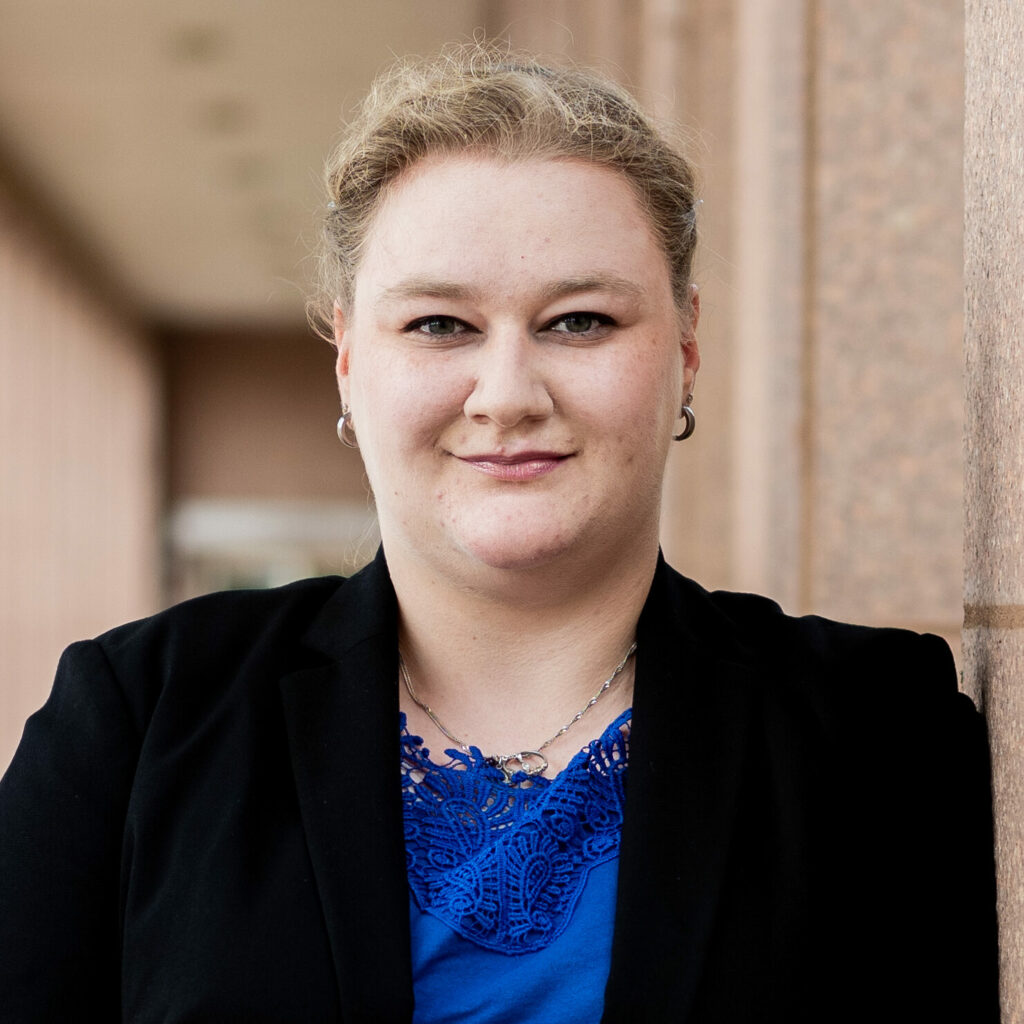
Virginia-Marie Fischer
Supervisor: Prof. Rebecca Waldecker
Co-Supervisor: Prof. Carsten Tschierske
Contact: virginia-marie.fischer@mathematik.uni-halle.de
I will do a doctorate in the project “Design of liquid quasicrystals and their approximants”. My focus will be on modelling of self-organized specific matter, developing mathematical tools for abstract describing and explaining changes of structures. This fascinating project is a possibility to break new ground in the scientific world and to show that mathematics is more than calculation of chemical quantities. I am pleased to be a part of this and the BEAM-Team.
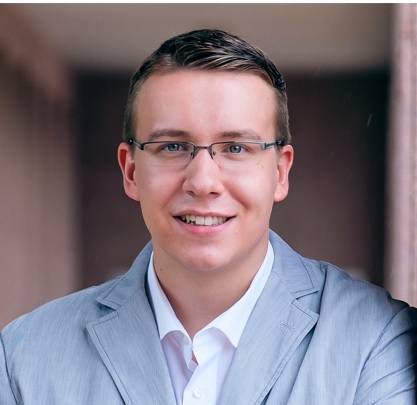
Til Kundlacz
Supervisor: Prof. Dariush Hinderberger
Co-Supervisor: Prof. Martin Weissenborn
Contact: til-erik.kundlacz@bct.uni-halle.de
Til Kundlacz obtained his Master’s degree in biochemistry from the Martin-Luther-University Halle-Wittenberg. In his Master thesis, he studied the interaction of Synaptotagmin-1 with phospholipids using native mass spectrometry. The goal of his PhD project is the characterization of interactions formed between proteins and lipids or detergents. Til uses mass spectrometric methods (i.e. native MS and IM-MS) as well as biophysical methods such as ITC, DSC or IRRAS to achieve his goal.
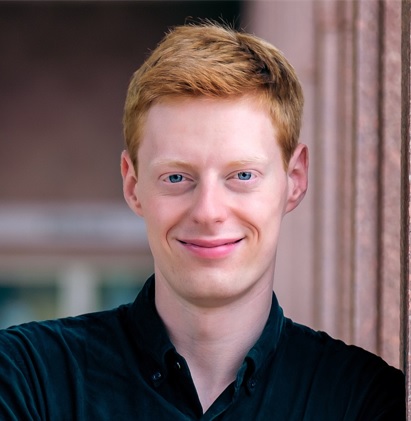
Dominik Homann
Supervisor: Prof. Martin Weissenborn
Co-Supervisor: Prof. Dariush Hinderberger
Contact: dominik.homann@chemie.uni-halle.de
My thesis is based on unspecific peroxygenases (UPOs) and their potential for non-natural known bioconversions. Especially radical reactions and the investigation of the mechanism is of particular interest for me. My motivation is to discover new and exciting reactions, which have not been described with enzymes yet.
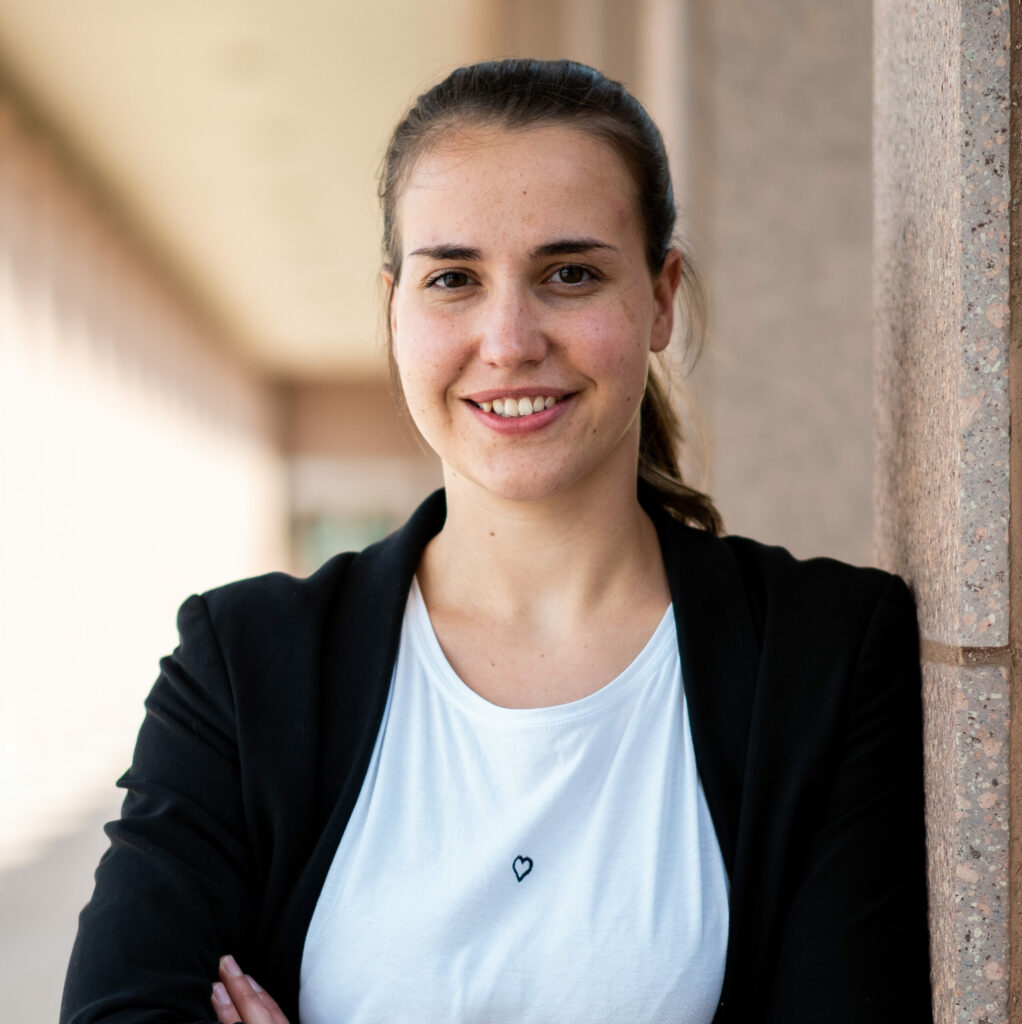
Alena Winter
Supervisor: Prof. Frederik Haase
Co-Supervisor: Prof. Martin Weissenborn
Contact: alena.winter@chemie.uni-halle.de
The idea behind my PhD project is to increase the stability and crystallinity of Covalent Organic Frameworks (COFs) by developing a new synthesis route: Initially, force-field optimized linkers with well-defined attachment points are designed and synthesized. Then, we synthesize Metal Organic Frameworks (MOFs), which arrange the linkers in space. These MOFs are then the starting point for the chemical transformation in the solid state leading to the formation of COFs. The highly crystalline MOF-template helps to overcome the crystallinity and stability problems and broaden the application of COFs.
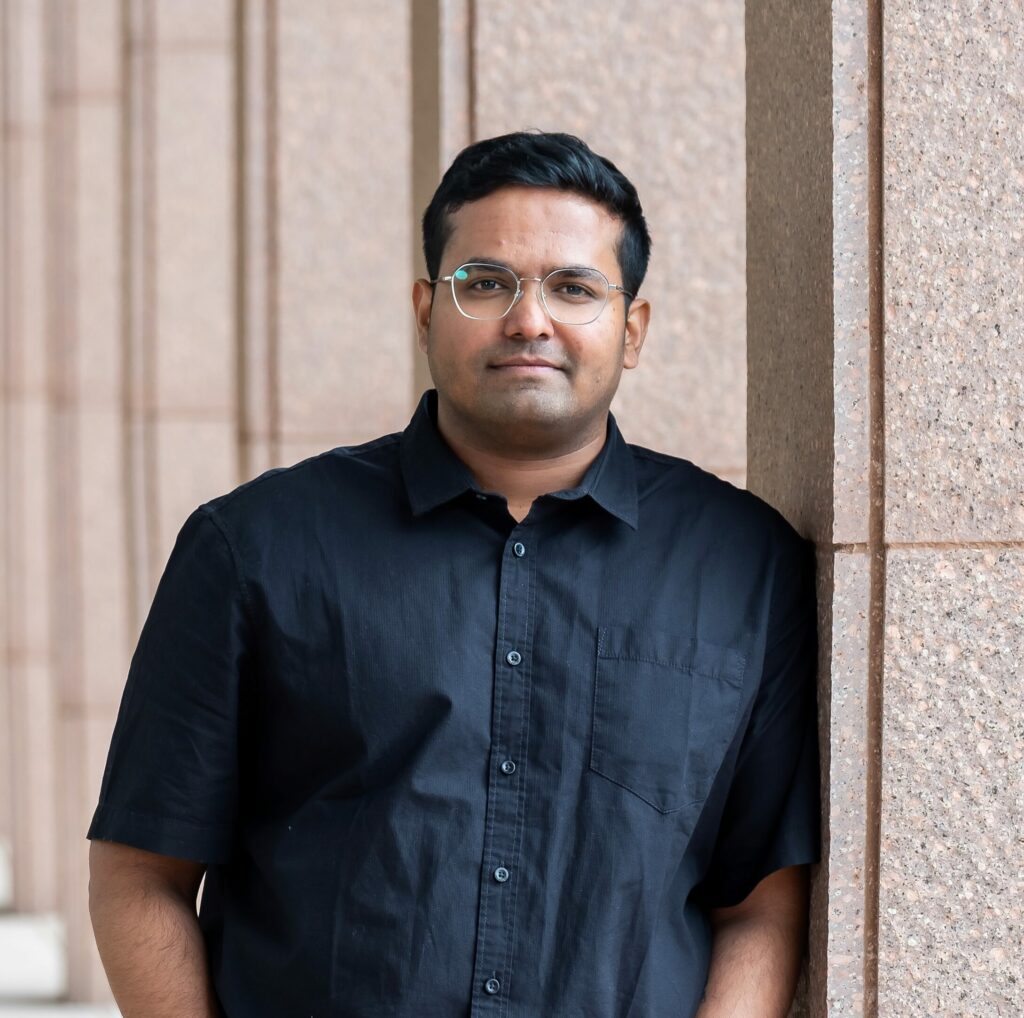
Subham Ojha
Supervisor: Prof. Frederik Haase
Co-Supervisor: Prof. Dr. Daniel Sebastiani
Contact: subham.ojha@chemie.uni-halle.de
During my masters I was really interested in Metal Organic Frameworks and always wanted to do further research on MOFs and other similar porous materials. I was intrigued by these materials due to their various applications, including gas separation/storage, water purification, catalysis, electrode materials, chemical sensing, drug delivery, and so on. For my doctorate research, I will be focusing on the new and some known reticular framework materials based on frustrated pseudo-C5- symmetrical building blocks and their applications in a variety of field such as gas and water adsorption, Proton conductivity, etc. The frustration in these frameworks arises from the conflict of the framework lattice and the fascinating thing about the geometric frustration possessed by these building blocks is that it can be used as a strategy to obtain highly complex porous materials.
Projects: B
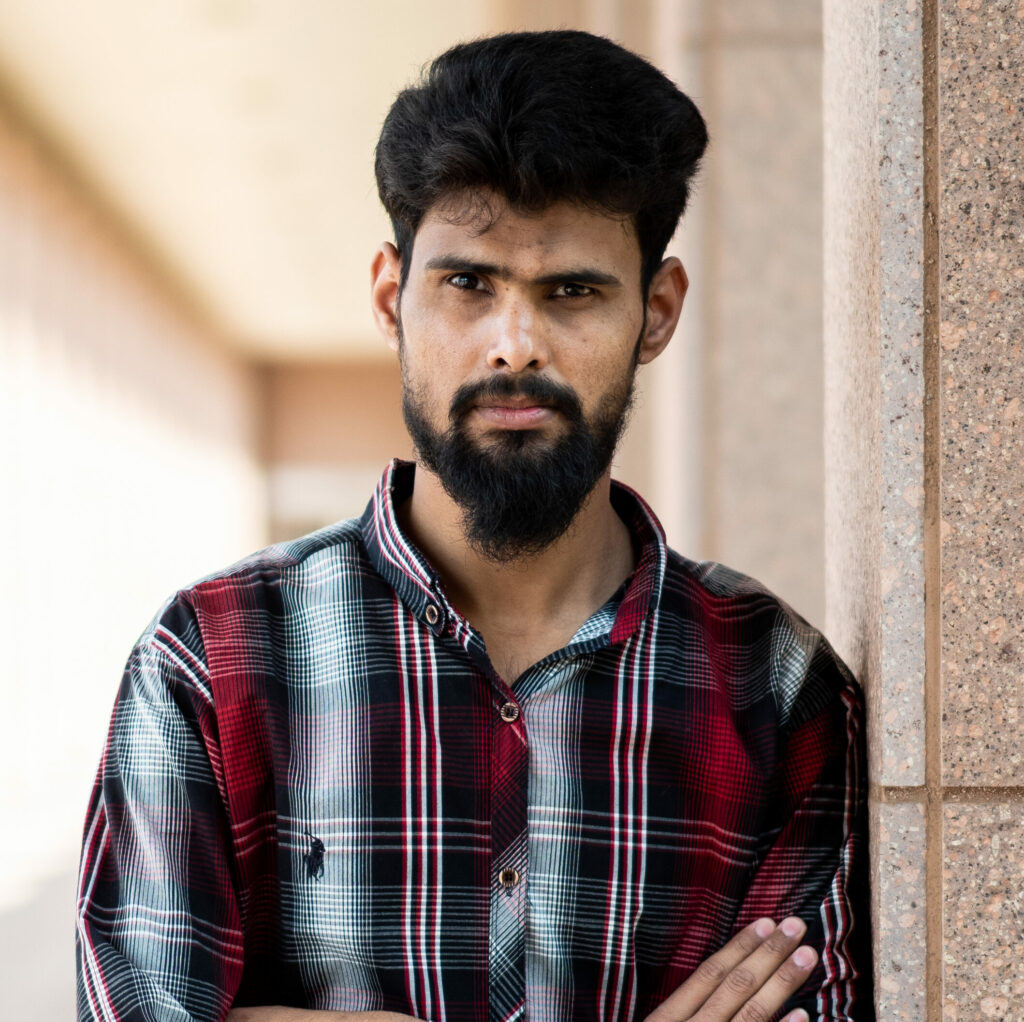
Muhammad Abu Bakar
Supervisor: Prof. Jörg Kreßler
Co-Supervisor: Prof. Daniel Sebastiani
Contact: muhammad.abu-bakar@chemie.uni-halle.de
During my M. Phil/MS pharmaceutical chemistry program I have worked on different research projects. I have experience of using Raman and surface enhanced Raman spectroscopy techniques. I have experience of synthesizing and characterizing nanoparticles and used these nanoparticles as biosensors for different biological applications. I have experience of different spectroscopic techniques such as NMR, UV-VIS, Infrared, ESR, Fluorescence and Mass spectrometry. My PhD thesis topic is “Synthesis and characterization of fluorophilic polymers”. I am interested to synthesized different fluorophiic biopolymers and characterized these biopolymers by using different spectroscopic techniques such as Raman, 19F NMR, UV-VIS, Infrared, ESR, Fluorescence and Mass spectrometry.

David Haselberger
Supervisor: Prof. Kay Saalwächter
Co-Supervisor: Prof. Dariush Hinderberger
Contact: david.haselberger@physik.uni-halle.de
Project B3 will focus on studying the effect of macromolecular crowding on translational and rotational diffusion of proteins. The object of study will be bovine serum albumin and how the addition of multivalent cations such as Y³⁺ alters the rotational and translational dynamics of the system. Various NMR techniques ranging from NMR-relaxometry to pulsed-field-gradient NMR are used for this purpose. As a chemist by training, I have always been drawn to the field of physical chemistry. For my PhD, I am looking forward to learn and apply many new methods and hope to contribute new knowledge in the field of protein diffusion.
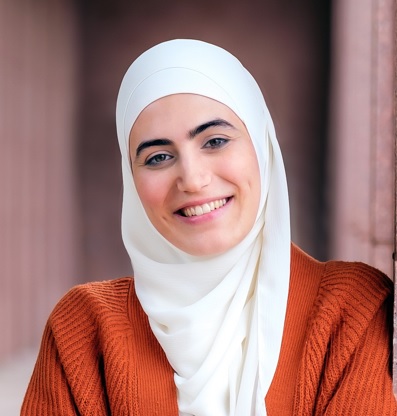
Marah Alqaisi
Supervisor: Prof. Wolfgang Binder
Co-Supervisor: Prof. Dariush Hinderberger
Contact: marah.alqaisi@chemie.uni-halle.de
My research topic is focusing on understanding and engineering the structural organization of polyphilic polymers that is governed by the supramolecular interactions present within the polymer chains and synthesizing single-chain nano-particles (SCNPs) based on such interactions. What motivates me the most about scientific research in general and this topic specifically is not just the desire to be of service to the scientific society, it is also the curiosity of unraveling the causes behind scientific observations. The introduction of monomers of many different philicities in the polymer chain is proposing a unique organization that’s not well-understood yet. I believe such challenge will keep me occupied throughout my PhD journey!

Sarah Neudorf
Supervisor: Prof. Kirsten Bacia
Co-Supervisor: Prof. Kay Saalwächter
Contact: sarah.neudorf@chemie.uni-halle.de
While studying biochemistry at Martin-Luther-University in Halle I became more and more fascinated by the complexity of proteins in terms of their interplay between their functions, biophysical properties and structural features. As part of the GRK2670 – Beyond Amphilicity – I am eager to elucidate protein-protein and protein-membrane interactions and the role of multiple interactions between multiple different particles.
(Pockels cohort)
Projects: A
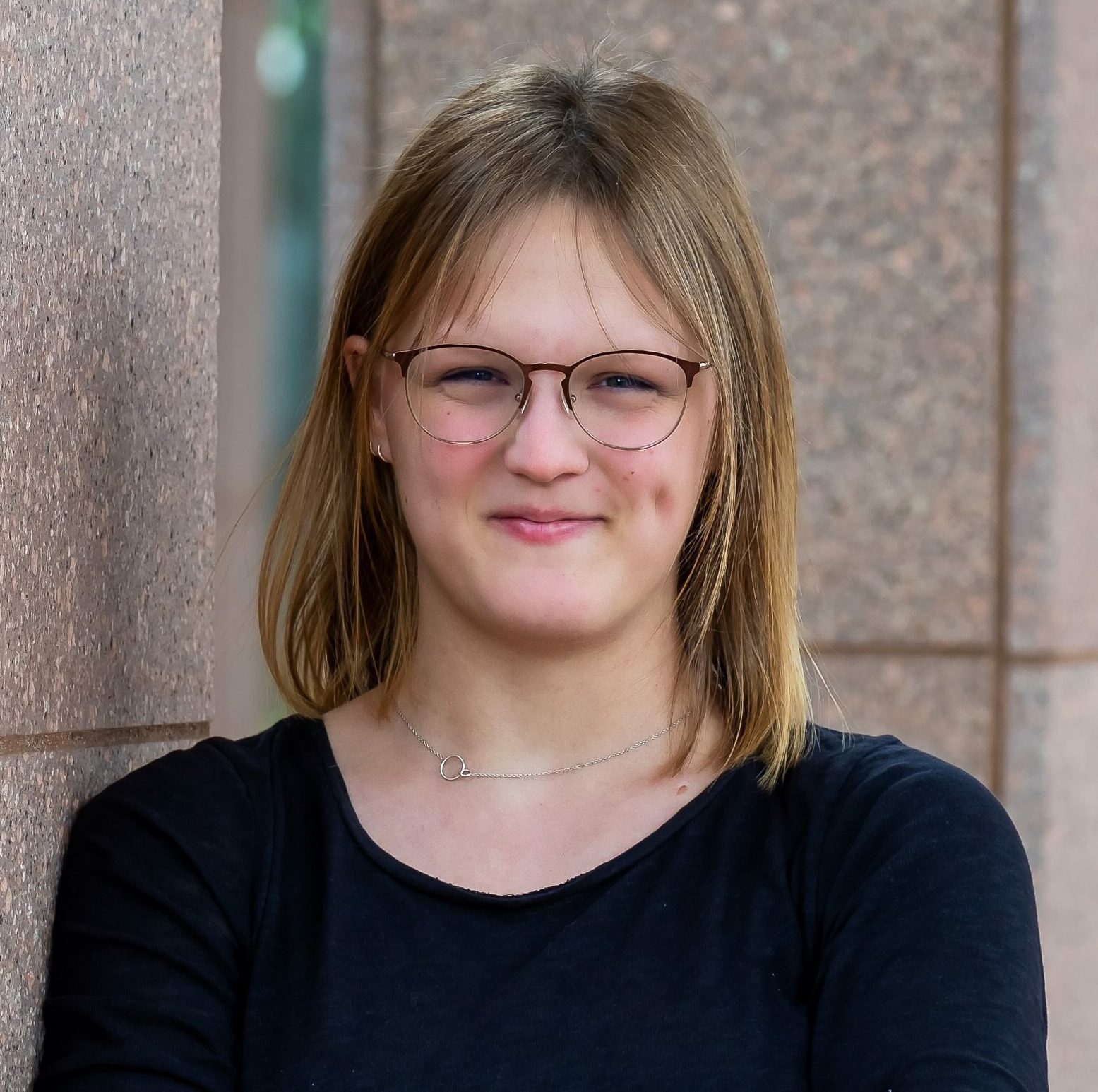
Annika Blum
Supervisor: Prof. Dariush Hinderberger
Co-Supervisor: Prof. Kirsten Bacia & PD Dr. Maria Hoernke
Contact: annika.blum@chemie.uni-halle.de
To prevent therapeutic agents, like vaccines, from becoming trapped in the endosome and undergoing lysosomal degradation, various compounds have been examined. This is achieved by facilitating endosomal escape, i.e. overcoming the endosomal membrane. The lowering of the endosomal pH and the occurrence of the negatively charged lipid BMP during endolysosomal development can be used to selectively permeabilize endosomal membranes.
In my work, I investigate different lengths of the membrane-active polymers P(NAiPP)n and P(NAMP)n regarding their pH-sensitive ability to permeabilize membranes of various lipid compositions. These polymers are quite hydrophilic, positively charged at high pH values, and have different transfection efficiencies. I characterize membrane perturbations caused by the polymers by using fluorescence and monolayer methods as well as microcalorimetry methods. Perturbations like membrane leakage, electrostatic lipid clustering, and membrane fusion can play important roles for membrane permeabilization and thus endosomal escape. These interactions are examined using
- different membrane models (large/giant unilamellar vesicles, multilamellar vesicles, lipid monolayer)
- different membrane lipid compositions (PC lipids, PC/PG lipid mix, PC/BMP lipid mix)
- different pH values (7.4, 6.5, 5.0)
A pH of 7.4 and net-uncharged membranes are a simple model of the cytoplasmic membrane. Lower pH values (6.5, 5.0) and the addition of negatively charged membranes (with PG- and BMP-lipids) represent different maturation stages of the endosome.
My overall goal is to understand the underlying membrane biophysics of the endosomal escape of these polymers to enable a directed design or selection of suitable new polymers for endosomal escape applications.
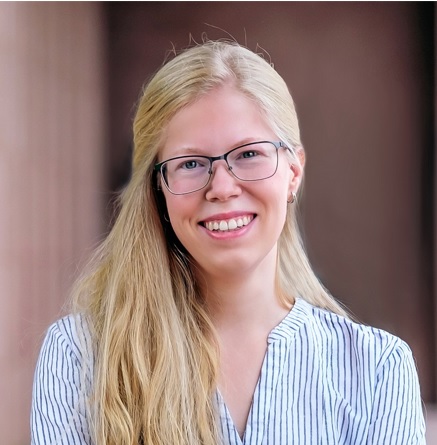
Jana Krüger
Supervisor: Prof. Dariush Hinderberger
Contact: jana.krueger@few.de
The goal for my PhD ist to develop migration-stable reagents For the purpose of photopolymerization. These reagents should be incorporated into the polymer in different ways to prevent diffusion from the end product. For this purpose, monomers based on acrylates and methacrylates are being developed, as they exhibit excellent properties for photopolymerization. Various iodonium salts are used as photoinitiators to initiate the process, and Coulomb interactions arising from their charge could be utilized to reduce diffusion. Depending on the intended application of the products, photosensitizers in the form of novel dyes and absorbers are also used to support initiation and must be bound within the polymer.
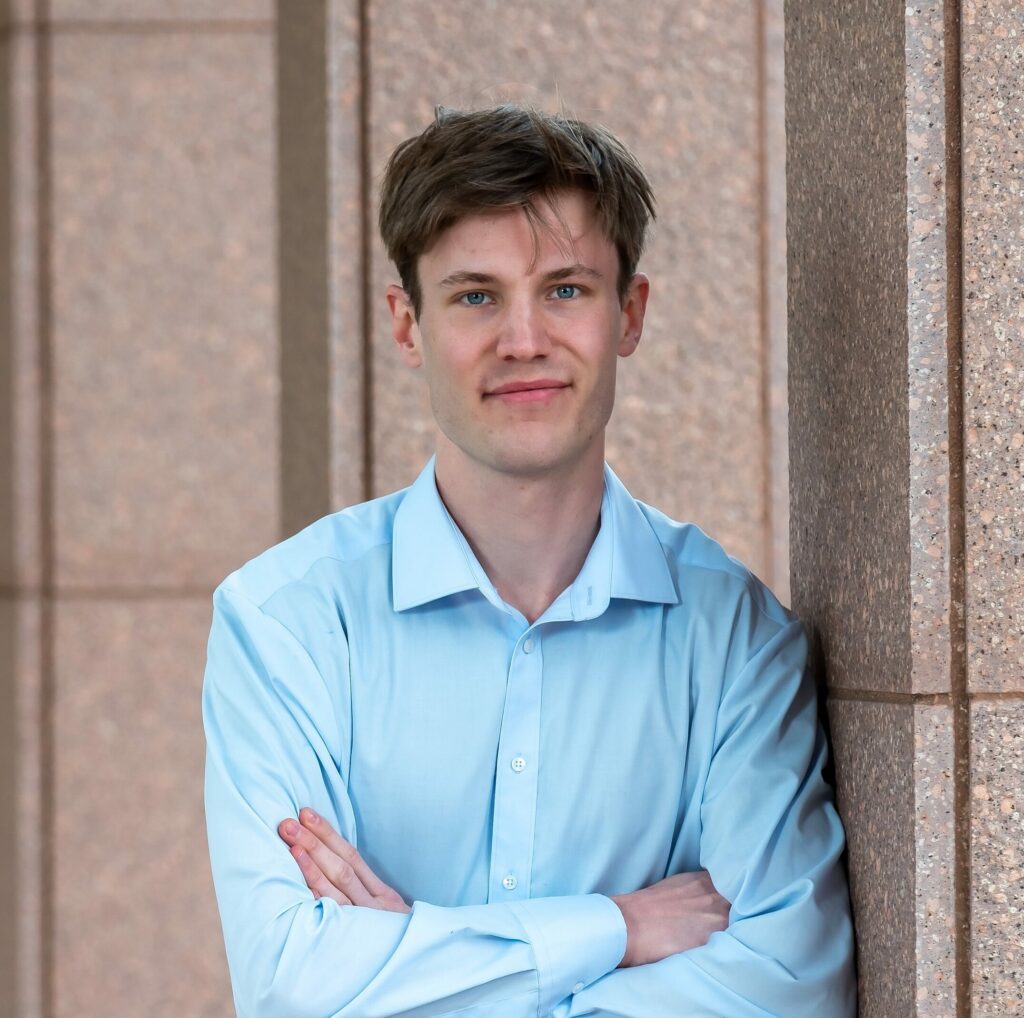
Jonas Lührs
Supervisor: Prof. Daniel Sebastiani
Co-Supervisor: Prof. Martin Weissenborn
Contact: jonas.luehrs@chemie.uni-halle.de
Philicity in biological systems plays an important role in explaining the functions as well as the structures of such systems. Further philicity describes the different intermolecular interaction energies competing with each other. In my PhD study I am interested in describing these different intermolecular interactions occurring in solvents by using quantum-mechanical and classical methods . These methods include molecular dynamics (MD) simulations as well as geometry optimizations to explore and determine the structural behaviour of different molecules/compounds in solvents.
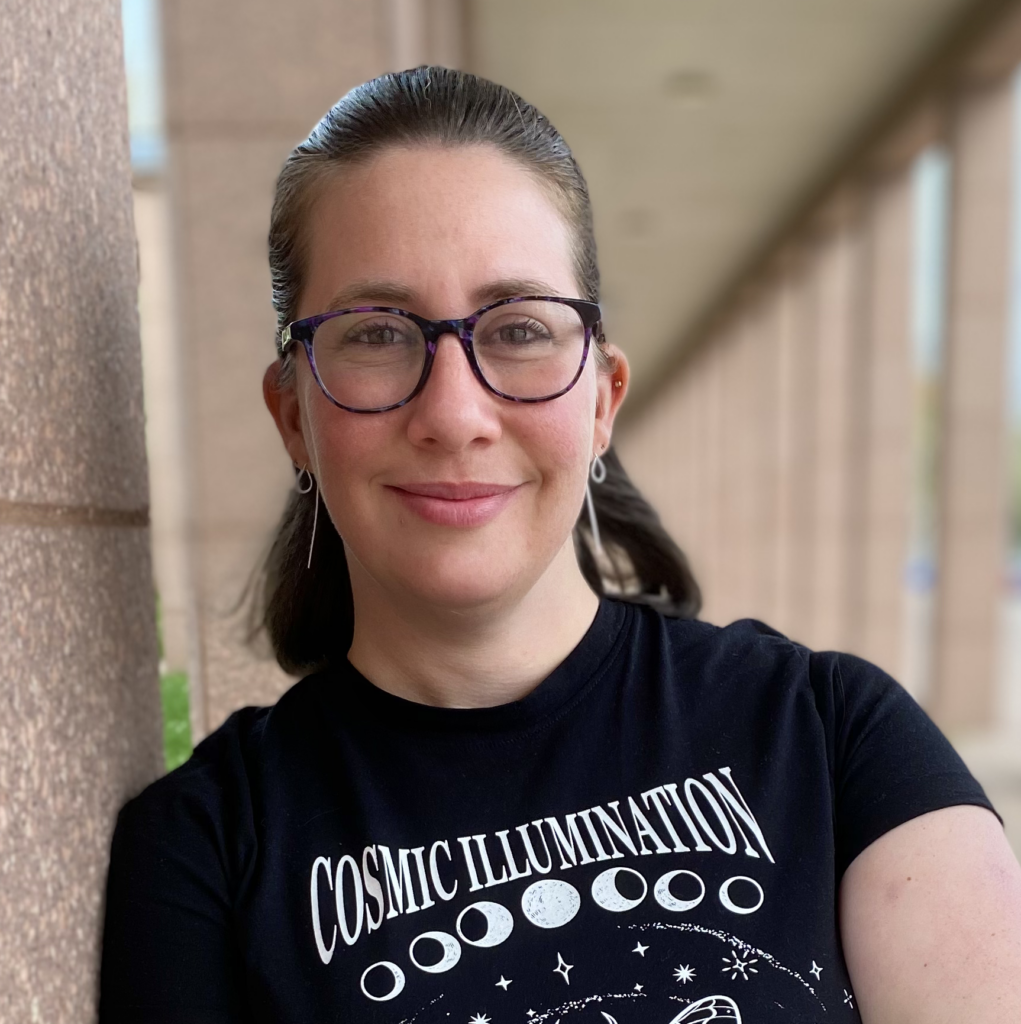
Daylin Fernandez-Pacheco
Supervisor: Prof. Dariush Hinderberger
Co-Supervisor: Prof. Daniel Sebastiani
Contact: daylin.fernandez-pacheco@chemie.uni-halle.de
My doctoral research focuses on studying the self-assembly process of small and medium-sized charged molecules in mixtures of binary and ternary solvents. My primary interest lies initially in synthesizing the molecules I will be using in this study, followed by the analysis of how these molecules interact and assemble in solution. To conduct this analysis, I will employ a variety of techniques, including X-ray diffraction, as well as light scattering methods such as Dynamic Light Scattering (DLS) and Electrophoretic Light Scattering (ELS), along with Electron Paramagnetic Resonance spectroscopy (EPR) . As an organic chemist by training, I consider immersing myself in the realm of physical chemistry to be an exciting challenge. However, I am eager to learn and apply new methods, and I hope to contribute novel insights to the field of self-assembled materials chemistry and physics.
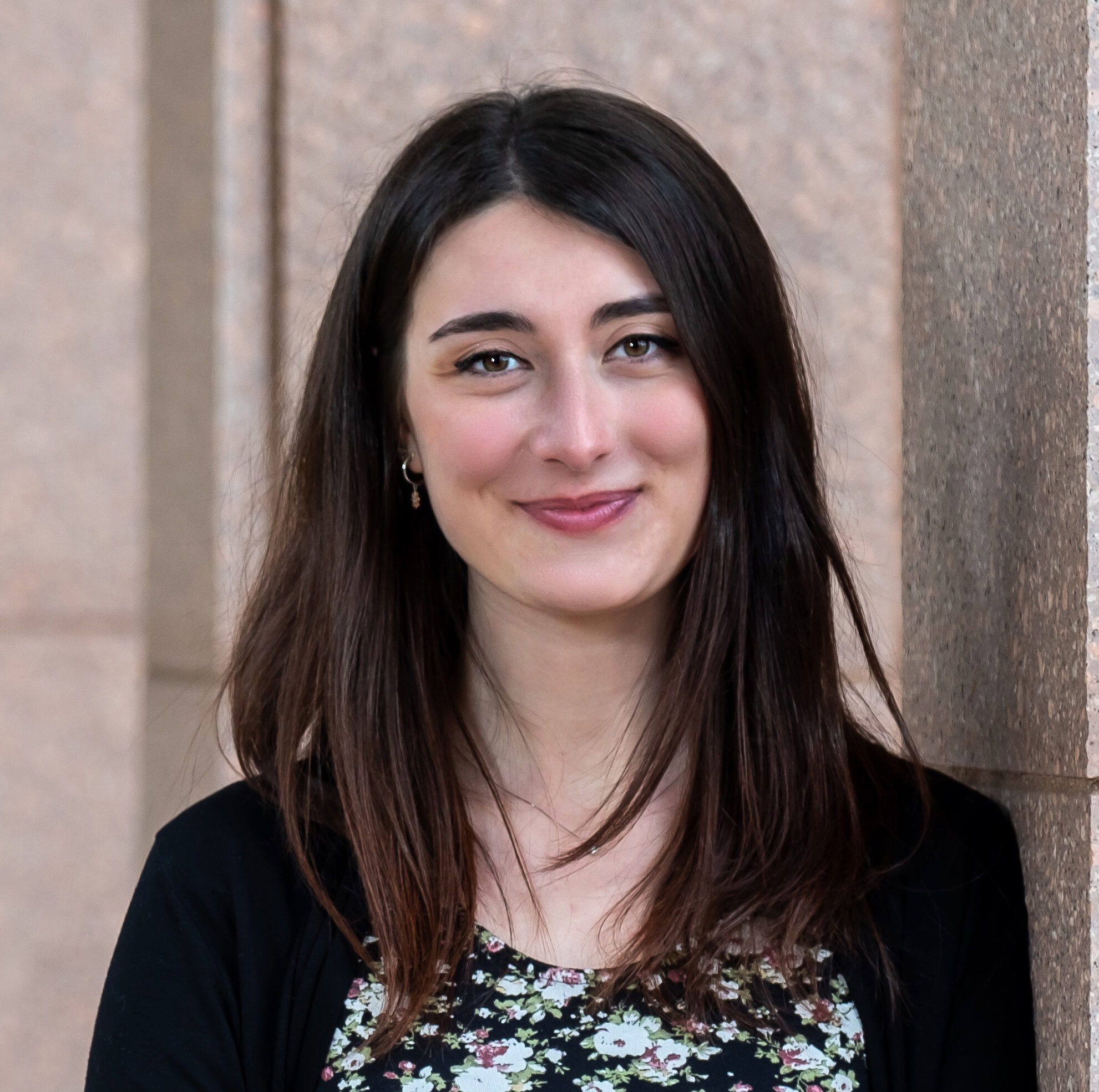
Simona Bassoli
Supervisor: Prof. Frederik Haase
Co-Supervisor: Prof. Dariush Hinderberger
Contact: simona.bassoli@chemie.uni-halle.de
Given the structural versatility of COFs and their ability to tune and customize pore size and shape, these materials provide an opportunity to design materials with specific properties and tailored pores for targeted applications. Additionally, most COFs exhibit a single type of linear pore, which is usually uniform in size and chemical environment.
Therefore, the focus of my research is to explore the use amphiphilicity and beyond to create pores, within a single material, with distinct chemical environments.

Sebastian Michler
Supervisor: Prof. Dariush Hinderberger
Contact: sebastian.michler@chemie.uni-halle.de
All living vertebrates need to synthesize, incorporate and metabolize hydrophobic molecules inside their tissues. For a smooth transport between cell organelles, membranes and blood, evolution created a system of amphiphilic transport proteins which can non-covalently bind these molecules. In my PhD-project I am going to analyze the binding characteristics and dynamic structures of human transport proteins from blood plasma (serum albumin) and myelin (FABP8). Combining modern EPR-spectroscopy, binding studies and comparative genetic analyses, their functionalities and evolutionary purpose will be further illuminated. Additionally, the role of proteins in human myelin will be analyzed by interaction studies with myelin-mimicking model membranes of rising complexity. Beyond the achievement of basic understanding, this approach could provide new cues for advanced diagnostics and therapeutic treatment of neuropathies such as multiple sclerosis.
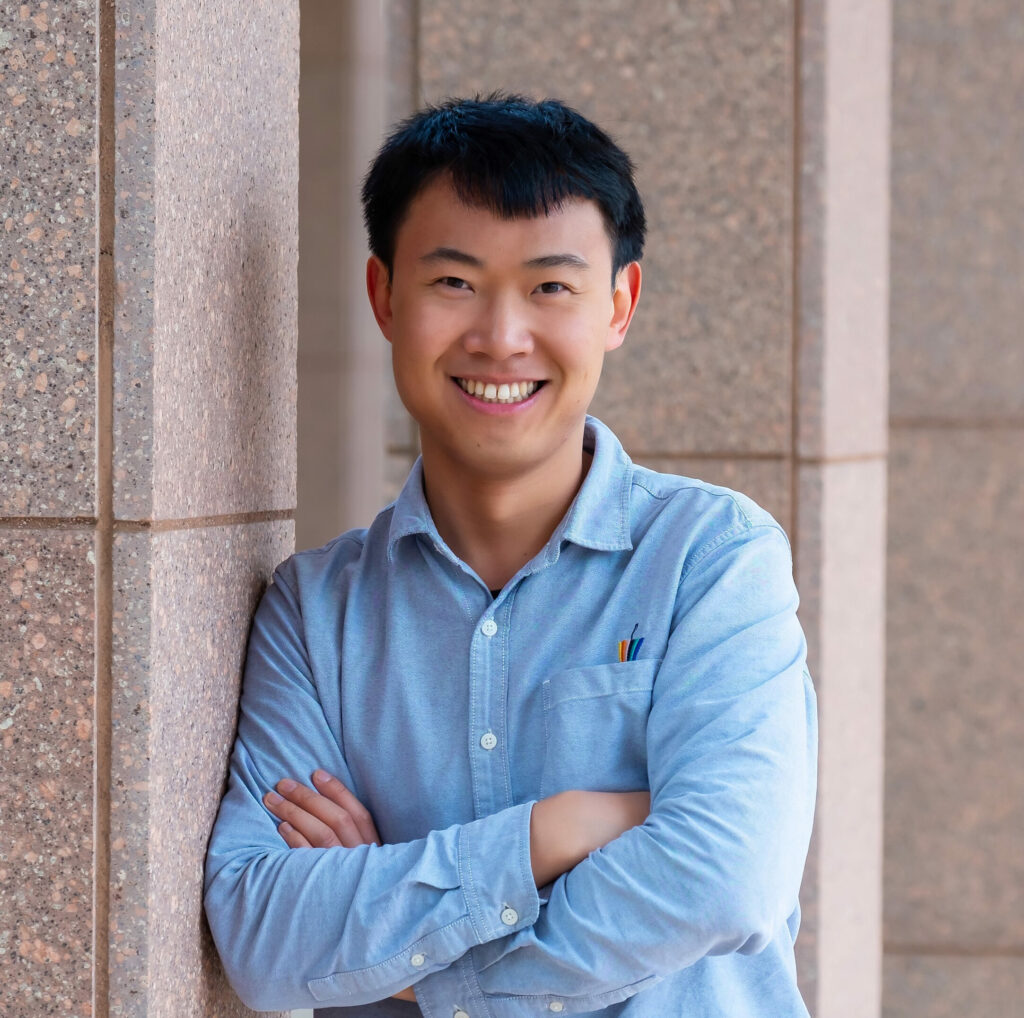
Li Wan
Supervisor: Prof. Martin Weissenborn
Co-Supervisor: Prof. Carsten Tschierske
Contact: li.wan@chemie.uni-halle.de
My doctorate study is to explore the catalytic potential of fungal unspecific peroxygenases (UPOs) through directed evolution and apply it to the oxyfunctionalization of terpenes and terpenoids. A novel method will be developed to screen the reactivity of UPOs mutants toward multiple substrates. Then, the reaction specificity, regioselectivity, and enantioselectivity of the positive mutants can be further determined and altered. My goal is to develop and refine this method to adapt to different UPOs and substrates.
